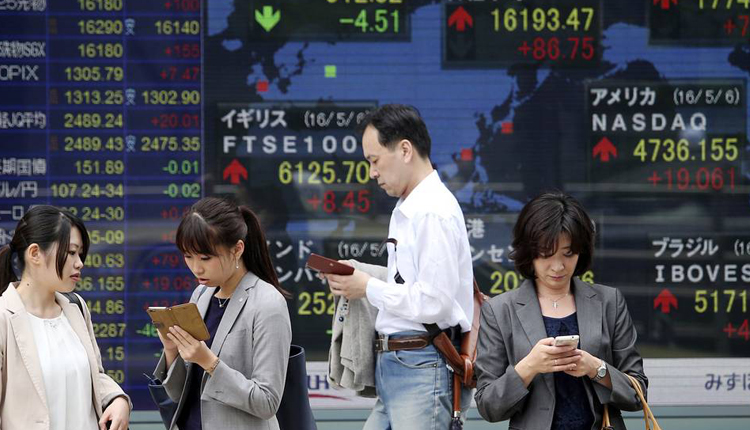Asian stocks were mixed on Thursday, as the U.S. takes aim at China’s Huawei again, heating up trade tensions further.
Mainland Chinese shares rose on the day, with the Shanghai composite adding 0.58% to 2,955.71 and the Shenzhen composite gaining 0.437% to 1,584.81.
In Hong Kong, the Hang Seng index rose 0.31%, as of its final hour of trading.
The MSCI Asia-ex Japan index slipped 0.14% to 509.44, as of 3:15 p.m. HK/SIN.
The Nikkei 225 in Japan slipped 0.59% to close at 21,062.98, while the Topix declined 0.43% to finish its trading day at 1,537.55. Over in South Korea, the Kospi dropped 1.20% to close at 2,067.69.
Australia’s ASX 200, on the other hand, rose 0.69% to close at 6,327.80 as almost all sectors advanced.
Shares of automakers in Asia were mixed on Thursday, with South Korea’s Hyundai Motor slipping 0.39% and Kia Motors adding 0.95%. Over in Japan, Nissan advanced 0.17%, while Toyota dropped 1.04%.
The moves came following reports that U.S. President Donald Trump plans to postpone auto tariffs by up to six months.
Trade tensions, however, continued to weigh on investor sentiment as Trump declared a national emergency over threats against American technology.
Following the order, the U.S. Department of Commerce announced the addition of Huawei Technologies and its affiliates to the Bureau of Industry and Security (BIS) Entity List, making it more difficult for the Chinese telecom giant to conduct business with U.S. companies.
Analysts at Eurasia Group described the Trump administration’s move as a “grave escalation with China.”
“Today’s events will be highly disruptive to US-China ties at a particularly delicate time in the relationship. China will view this as an openly hostile act and a major provocation,” they wrote in a note. “We will be closely monitoring Beijing’s response at a time when nationalist sentiment appears to be hardening.”
“Beijing is unlikely to continue serious trade negotiations when it feels held hostage by the US. Even if negotiations do proceed, in this hostile climate Beijing is even more unlikely to make significant concessions to the US, especially on the technology issues at the heart of the trade dispute,” they said.
Meanwhile, the recent release of weaker-than-expected economic data stoked fears that the U.S.-China trade war is dragging down global economic growth.
U.S. retail sales fell 0.2% in April, the Commerce Department said Wednesday. Economists polled by Dow Jones expected an increase of 0.2%. Over in China, data released Wednesday showed the country’s industrial output and retail sales growth for April also coming in below expectations.
Those numbers came amid a recent re-escalation in trade tensions between Beijing and Washington, starting with the U.S. raising tariffs on $200 billion worth of Chinese imports last week. In retaliation, China hiked tariffs on $60 billion worth of U.S. goods earlier this week. The U.S. also raised the possibility of slapping tariffs on an additional $300 billion in goods from China.
The U.S. dollar index, which tracks the greenback against a basket of its peers, was at 97.537 after seeing highs above 97.6 yesterday.
The Japanese yen traded at 109.47 against the dollar following a turbulent session yesterday that saw it swinging below 109.2 and above 109.6. The Australian dollar changed hands at $0.6911, having earlier slipped to a low of $0.6891 after the release of worse-than-expected unemployment data in the country.
Oil prices rose in the afternoon of Asian trading hours, with the international benchmark Brent crude futures contract adding 0.5% to $72.13 per barrel, while U.S. crude futures gained 0.64% to $62.42 per barrel.
Source: CNBC


